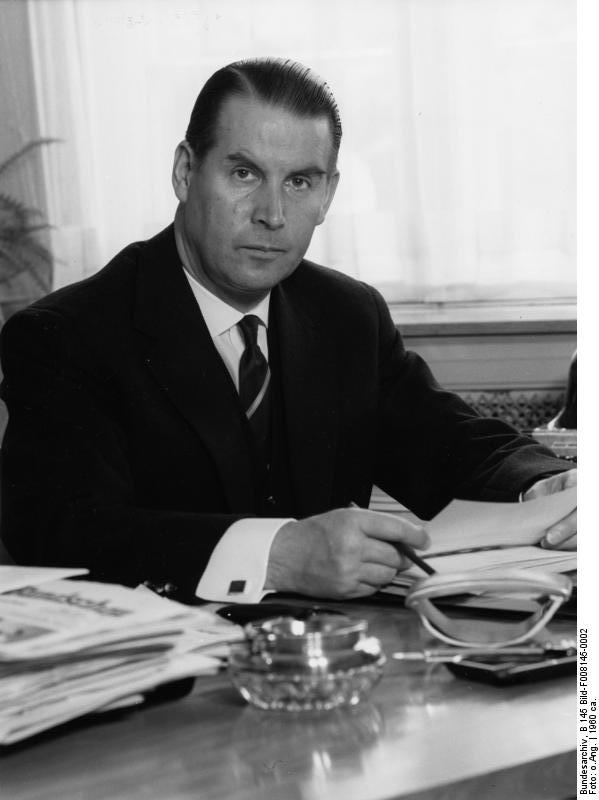Part of the Project "Die Nachkriegsgeschichte des Bundesministeriums des Innern (BMI) und des Ministeriums des Innern der DDR (MdI)"
Research on the emergency legislation in the Federal Republic so far has concentrated on the critics of the Emergency Laws. In contrast to this, this project focused on the perspective of the Federal Ministry of the Interior (BMI) as the institution that is primarily responsible for the administration of security. The paper enquires after continuities and changes within the emergency policies of the Federal Republic after 1949, in comparison to the emergency policies of the Weimar Republic and the National Socialist regime. As the main objects of study, the biographical backgrounds of the civil servants of the BMI divisions for civil defence, constitutional law and public security will be scrutinised, as well as their legislative work for a federal Emergency Law.
Recent historical studies postulate a process of – political, cultural, social, etc. – Westernisation, Liberalisation, or Democratisation, respectively, at the end of the 1950s. However, does such an assertion also apply to the administrative organisation responsible for the political constitution of the young Federal Republic? By means of an analysis of the (legally anticipated) state of emergency, one can unveil potential anti-democratic, anti-pluralistic and anti-liberal mindsets among federal public servants, as well as the legal and political consequences of such mentalities.
During the 1950s and, especially in the context of protests against the emergency laws, the early 1960s, according to the main assumption of my paper, there was a liberal-democratic ‘process of learning against will’ within the BMI staff. Since 1958, the civil servants faced an increasingly public outrage concerning the emergency laws; the emerging protest movement criticised the illiberal tendency of the federal emergency legislation. In which way the BMI staff tried to ensure the authority of the government and at the same time adapted to a changing social and political environment – that is one of the key questions for a better understanding of the history of the Federal Republic.
Initial research findings of the project can be found at: http://geschichte-innenministerien.de/
Final report of the preliminary study from 29 October 2015 (pdf) on the topic: The Post-war History of the Federal Ministry of the Interior (BMI) and the Ministry of the Interior of the GDR (MdI) regarding Possible Personnel and Material Continuities from the Time of National Socialism
Publication:
»Die Stunde der Exekutive« Das Bundesinnenministerium und die Notstandsgesetze 1949-1968, Wallstein Verlag, Göttingen 2019
(published 01.04.2019)

